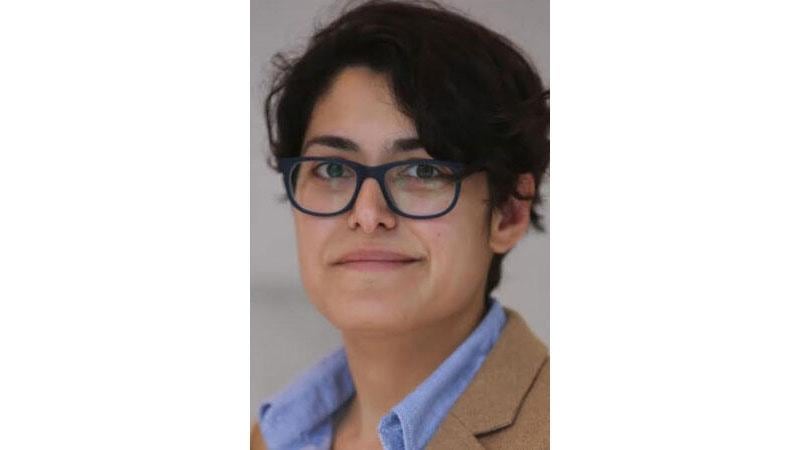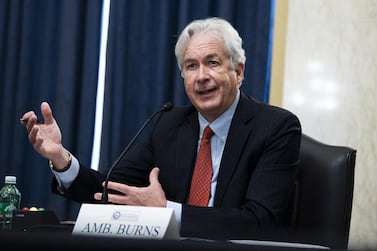Online attacks against Arab, Iranian and Muslim Americans appointed to prominent positions by US President Joe Biden sparked outrage and alarm in Washington.
Last week, Ariane Tabatabai announced she was joining the US State Department as a senior adviser to the undersecretary of state for arms control and international security.
Ms Tabatabai has years of experience working on Middle East issues.
She reads Arabic, speaks Farsi and French and was most recently an adjunct professor in the security studies programme at Georgetown University.
By most accounts she is an excellent addition to the State Department.
But almost immediately after Ms Tabatabai made the announcement on Twitter, right-wing commentators started attacking her on the social media platform.
They took aim at her Iranian heritage and even attacked her father, Javad Tabatabai, a well known and respected Iranian philosopher.
“There are specific allegations made about her, made about her family and about her associations and motivations that are baseless and grossly inappropriate,” said Tamara Wittes, a senior fellow in the Centre for Middle East Policy at The Brookings Institution.
The online attacks prompted State Department spokesman Ned Price to tweet: “We strongly condemn online harassment of State Department personnel.
"While we welcome debates on key policy issues, ad hominem attacks on US officials, or anyone, based on ethnic background are unacceptable. We call for civil discourse, diplomacy, and constructive dialogue.”
Shibley Telhami is the Anwar Sadat Professor for Peace and Development at the University of Maryland. He says it is hard to see the attacks as anything but racist and bigoted.
“I think it is really hard not to conclude that that is what it is,” Prof Telhami said.
He is pleased with the department’s unwavering support so far of the people attacked.
“They are not even concerned in any way," Prof Telhami said. "They’re sticking with the people that they’ve hired.
"They’ve already vetted them. They are comfortable with them and they are categorically holding firm.”
Ms Tabatabai is not the only official who was attacked online.
Maher Bitar was named the National Security Council’s senior director for intelligence programmes by Mr Biden.
The right-wing Jewish News Syndicate published an opinion piece with the headline: Biden puts anti-Israel BDS activist in charge of NSC intel.
The right-wing American website Breitbart published a similar article titled "Biden names anti-Israel activist, Adam Schiff aide Maher Bitar to senior intel role".
Mr Bitar, who went to Oxford and Georgetown, was most recently representative Adam Schiff’s top legal adviser.
"I am thrilled to see him in his new post, though we will certainly miss him on the committee," Mr Schiff told Politico.
In November, Mr Biden picked Reema Dodin, a Palestinian American, to be the White House’s deputy legislative affairs director.
Ms Dodin, who has worked in the Senate for years, was attacked by some right-wing media outlets alleging that she supported “suicide bombers”.
It was a mischaracterisation of a speech she gave at a campus event in Lodi, California in 2002.
The attacks also outraged Jewish groups. J Street, a progressive pro-Israeli, pro-peace group based in Washington, condemned the attacks.
“This seemingly endless cycle of smear campaigns is clearly rooted in the bigoted idea that public servants from these backgrounds are somehow inappropriate or unfit choices to work on important issues of foreign policy and national security, or that they somehow pose a threat to their fellow Americans,” J Street said.
The attacks are unlikely to deter the appointees but may have that effect on others.
“This kind of bigotry is a deterrent to people going into public service and that is tragic and that's why it is so important we call it out,” said Ms Wittes of Brookings








